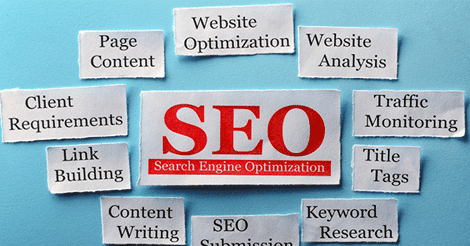Why Linking Building Will Still Matter in 2016
Google’s 2012 Penguin update permanently changed the game. Some of the things that worked before abruptly stopped working. SEO’s panicked. Website rankings plummeted. Chaos ensued.
Lost in all of the chaos and the noise were the facts. People became very misinformed on what works and what doesn’t. Bad SEO practices sort of became the norm.
One of the assertions, of which we’re going to talk about today, was that SEO success no longer depended on link building. Links were dead, according to some experts, and you were better off looking to new strategies if you wanted to rank.
Well, nope, sorry.
Link building is still alive and kicking. Yes, the type of links that you need to build are very different than, say, five years ago. Linking building is, at the end of the day, still a viable strategy and a crucial element in being successful at SEO. We’re going to discuss some of the reasons why that’s still the case, and what it ultimately means for your business.
Backlinking: A simple definition
Let’s do a basic primer. Backlinks are a links that go to your website. Search engines value it because it’s an indicator that your site is valuable. Back in the day, the logic was this: The more backlinks you have, the more valuable your site should be. Pre-Penguin, sites that had the most backlinks had the best rankings and reigned. It was generally a numbers game. Build the most backlinks and then you’d get the best rankings. It was very clear cut, and very easy to game.
Now, backlinks are only valuable if they’re quality. The quantity doesn’t matter if the quality of the links is poor. Quantity is effective when you have quality.
What are “quality” backlinks ?
A quaility backlink is both relevant and trustworthy. Relevant means that it has some connection with your business or market. So, if you’re a plastic surgeon, would it be natural for the majority of your links to come from random websites that have nothing to do with plastic surgery? No, it wouldn’t. Your links should come from websites in the same niche as yours.
There are different metrics to determine if a link is trustworthy. For simplicity’s sake, you should avoid websites that come from obviously spammy domains. If a website has been penalized by Google, avoid it like a plague. Ideally, authoritative websites are the best to receive backlinks from.
What all of this means for your business
The face of backlinking has changed dramatically. Backlinking used to be automatic. You could use a variety of different software to generate mass links for your website, and you’d benefit from it by ranking higher. Now, that doesn’t work so well. Backlinks are personal now. Google wants you to provide value so that webmasters will naturally link back to you. Now it’s about hunting for websites who will link to you. Link building is both active and passive. It’s active because you need to search for those website who will link to you, and it’s passive because you need to build some sort of value (i.e. great content) to give them a reason to link to you in the first place. So, it’s a game of building and hunting.
You are building content, interactions and relationships in topically relevant places. This is how Google wants backlinking to work in 2016, and in some ways, it makes sense. The way to make it work is to constantly find new opportunities to place links on authoritative sites.
Backlinking isn’t dead; it’s just different. Use the current climate to your advantage, and outrank your competition.
Are you ready to discuss your next marketing project with the leader in digital marketing? If so, contact Zen Agency today! We are a group of digital marketing experts.

















